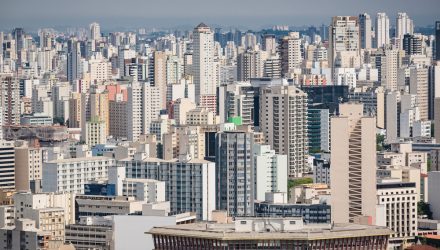As traditional emerging markets benchmarks register another disappointing year relative to U.S. equities, it’s not surprising many investors are prepared to ignore developing economies in 2022.
Compounding that scenario is the fact that plenty of professional investors are expressing dour sentiment on emerging markets for the new year, but all that negativity belies opportunity with the right exchange traded funds, including the Guinness Atkinson SmartETFs Asia Pacific Dividend Builder (ADIV).
To be clear, ADIV isn’t a dedicated emerging markets ETF, but, as its name implies, it focuses on Asian economies, both developed and emerging, and that could be a point in the fund’s favor in 2022, particularly as the region works to put the clamps down on the coronavirus.
“While this marked a reversal of what happened in 2020 when Asian economies handled Covid better, this low base should provide tailwinds to the recovery alongside other factors such as brighter household finances that were supported by fiscal measures,” according to BNP Paribas research. “We should also note the positive wealth effect that fiscal and monetary support has created in many developed economies and the boost to demand that has engineered. That should rub off on a lot of emerging markets.”
ADIV, which holds 36 stocks, features exposure to 10 countries, six of which are emerging markets, and developing economies account for over two-thirds of the fund’s weight, making the aforementioned sentiment on emerging markets relevant to this fund.
Some developing economies are already hiking interest rates, but that could actually be beneficial to ADIV investors in 2022. After all, the fund devotes 14% of its weight to rate-sensitive bank equities.
“Here, we believe that the balance sheets of most Asian emerging economies are quite healthy, so more resilient when compared to these of the economies of eastern Europe, Africa, and Latin America. The outlook, though, will depend on the pace and the extent of US interest-rate increases, especially given the recent more hawkish comments from the Federal Reserve chair on inflation,” adds BNP Paribas.
Bottom line: There’s always risk involved with emerging markets equities, but a case can be made much of that risk is already priced in.
“The risks for Asian and global emerging market equities going into 2022 look manageable to us at this point. These economies do not have the firepower that developed economies have, so the challenge for policymakers will be how to balance the gradual withdrawal of the extraordinary fiscal measures. Overall, though, we are cautiously optimistic,” concludes BNP Paribas.
For more news, information, and strategy, visit the Dividend Channel.
The opinions and forecasts expressed herein are solely those of Tom Lydon, and may not actually come to pass. Information on this site should not be used or construed as an offer to sell, a solicitation of an offer to buy, or a recommendation for any product.

